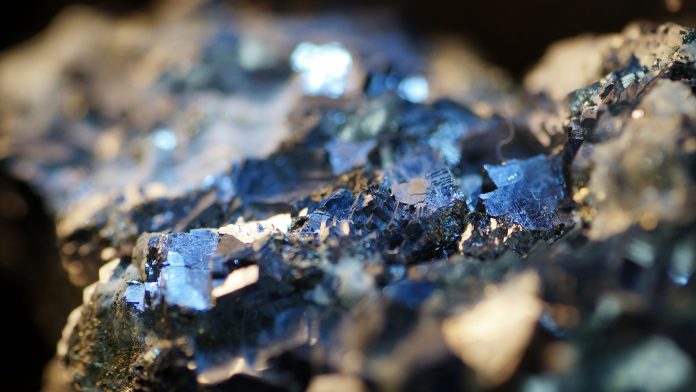The announcement of funding for the UK’s first magnet materials refiner, alongside the publication of Britain’s first Critical Minerals Strategy, is paving the way for a secure magnet metals supply chain.
Today, 22 July 2022, a groundbreaking £145m investment in the UK’s first magnet materials refiner has been launched, ensuring hundreds of jobs in East Yorkshire, and a solid position for the UK in the international magnet materials market. This revelation comes alongside the publication of Britain’s first ‘Critical Minerals Strategy,’ which is set to strengthen the resilience of supply chains and take advantage of the economic opportunities that are emerging in growing industries like offshore wind and electric vehicles.
During his speech at Pensana Saltend, the site for the magnet materials refiner, Business Secretary Kwasi Kwarteng explained that the facility will be established to process the critical minerals employed in magnets, which are critical elements for producing electric vehicles. Pensana is anticipated to begin its operations at the end of 2023.
Building a magnet materials refiner to help electrify the UK’s automotive industry
The facility is being supported by the government’s Automotive Transformation Fund, an £850m programme to transform and electrify Britain’s automotive supply chain and safeguard Britain’s competitiveness in the global market. This novel funding will ensure that UK is one of the first countries in Europe to have the facilities needed to refine the rare earth oxides utilised in the building of magnets.
As laid out in the new ‘Critical Minerals Strategy’, minerals including graphite, lithium and silicon are essential to the economy, as they are the core elements in many products, such as laptops to aircraft. However, supply chains are incredibly complex, and markets are unpredictable, with most critical minerals currently obtained in a select few countries, most predominantly, in China. This means that UK jobs and industries are dependent upon minerals that are susceptible to market shocks and geopolitical events. Thus, guaranteeing that UK firms have robust and environmentally friendly access to critical minerals will be crucial for the development of industries such as electric vehicle manufacturing, which will support jobs across the UK for decades to come, as well as safeguarding national security.
Towards a secure supply chain of critical materials
Today’s strategy outlines plans to develop a more secure supply of these minerals for the huge range of industries that depend on them, thus protecting Britain’s interests into the future. The measures in the plan include boosting domestic production, building the UK’s skills base, conducting world leading research and development, and enhancing reuse and recycling. As well as this, it outlines the significance of working with international partners to develop trading relationships and diversify supply chains.
Kwasi Kwarteng commented: “With rising geopolitical threats, Britain needs to move quickly to secure the rare earth minerals necessary to supply our future industries. Most of these minerals are sourced from just a handful of countries, leaving Britain vulnerable to market shocks. We need to develop and strengthen our own supply chains to protect our national security into the future.
“Russia’s illegal invasion of Ukraine is a timely reminder of how global events beyond our control can impact supply chains, with profound consequences for the economy. To boost our domestic resilience, today’s Critical Minerals Strategy lays out our plan to bring high-value manufacturing back to the UK to protect our country’s future access to supplies.
“Our support for Pensana’s new facility in Yorkshire shows we are already putting the Strategy’s aims into action to diversify our supply chains away from dominant market players.”
The world’s first independent and sustainable rare earth separation plant
Paul Atherley, Pensana Chairman, added: “Pensana is delighted to have secured funding from the UK government’s Automotive Transformation Fund, which demonstrates the government’s support for Pensana’s role in securing the UK’s magnets metals supply chain.
“Our Saltend rare earth processing hub will be the world’s first independent and sustainable rare earth separation plant, with plans to produce 5% of the global magnet metals in 2024. This will play a vital role in transforming the UK’s electric vehicle and offshore wind industries, as well as creating high value local jobs in the Humber region.”
The production of critical minerals is projected to rise sharply, with some increasing as much as 500% by 2050. These materials are often irreplaceable in vital products that people depend on for their daily life, in clean technologies and national security – from electric vehicles and mobile phones to wind turbines and fighter jets.
The UK as a trading hub for metals and minerals
The new strategy sets out an ‘ACE’ framework, with plans to accelerate the growth of the UK’s domestic capabilities, collaborate with international partners, and boost international markets. Work to develop the UK’s onshore supply chains forms just one part of what is planned domestically, with an emphasis on rebuilding skills, enhancing research efforts, and increased levels of recycling and reusing.
On top of this, there are actions proposed to take advantage of the City of London’s distinctive position as a global trading hub for metals and minerals, in order to make global markets more efficient in providing the minerals we need. This will include the push for greater environmental, social, transparency and governance standards in critical mineral markets worldwide. Holding the market for critical minerals to higher standards helps reduce the likelihood of unforeseen events causing supply problems.









